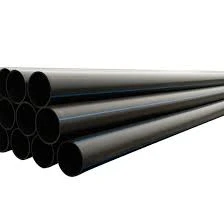Dec . 13, 2024 06:04 Back to list
marine hdpe sheets
Understanding Marine HDPE Sheets The Ultimate Solution for Marine Applications
In the world of marine construction and applications, the materials used play a crucial role in durability, performance, and longevity. One material that stands out due to its exceptional properties is High-Density Polyethylene (HDPE) sheets, particularly those designated for marine use. Marine HDPE sheets are engineered to withstand harsh environmental conditions, making them an ideal choice for a variety of marine applications.
What is Marine HDPE?
Marine HDPE is a type of thermoplastic polymer known for its high strength-to-density ratio. It is a specialized form of HDPE that is typically manufactured with additives to enhance its performance in marine environments. These additives can improve UV resistance, enhance durability, and increase resistance to the corrosive effects of saltwater. With their versatile properties, marine HDPE sheets are utilized in numerous marine applications, from boat building to docks, marinas, and more.
Key Properties of Marine HDPE Sheets
1. Corrosion Resistance One of the primary reasons marine HDPE sheets are favored over traditional materials like wood or metal is their resistance to corrosion. Unlike metal, which can rust, or wood that can rot, marine HDPE remains impervious to saltwater and other harsh elements.
2. UV Stability Exposure to sunlight can degrade many materials over time, but marine HDPE sheets are designed with UV stabilizers that protect them from the damaging effects of the sun. This property ensures that the sheets maintain their structural integrity and appearance, even after prolonged exposure to outdoor conditions.
3. Low Maintenance Marine environments can be demanding, making low-maintenance materials highly desirable. Marine HDPE sheets do not require painting, sealing, or other cosmetic interventions, which makes them a cost-effective choice over time. A simple wash with soap and water is usually enough to keep them looking new.
4. Lightweight and Durable Despite their toughness, marine HDPE sheets are lightweight, which makes them easy to handle and install. This characteristic is particularly advantageous for boat builders and dock manufacturers, enabling easier transportation and assembly.
5. Impact Resistance The flexibility and toughness of marine HDPE make it resistant to impact damage from waves, debris, and other forces typically found in marine environments. This quality ensures that structures built with these sheets can endure the rigors of marine life.
marine hdpe sheets

Applications of Marine HDPE Sheets
The versatility of marine HDPE sheets allows them to be used in numerous applications
- Docks and Marinas HDPE sheets are often used in the construction of floating docks and marina walkways. Their resistance to water damage and other environmental factors makes them an ideal choice for sustained exposure to marine conditions.
- Shipbuilding In boat construction, marine HDPE can be used for hulls, decks, and other structural components due to its strength and lightweight properties.
- Sea Walls and Retaining Walls Marine HDPE sheets are effective in the construction of sea walls, providing protection against erosion and water damage.
- Water Treatment Facilities Due to their chemical resistance, marine HDPE sheets are also used in water treatment plants where contact with various chemicals is a concern.
- Aquaculture In fish farming and aquaculture applications, marine HDPE is utilized for tanks and holding systems, ensuring a safe and durable environment for aquatic life.
Conclusion
In conclusion, marine HDPE sheets are a superior choice for numerous marine applications due to their unique properties and benefits. Their resistance to corrosion, UV stability, and low maintenance requirements position them as a valuable investment for individuals and businesses involved in marine construction. Whether for building docks, constructing boats, or creating environmental barriers, marine HDPE sheets provide a reliable and efficient solution for enduring the challenging marine environment. As technology advances, we can expect further innovations in HDPE materials, making them even more advantageous for future marine applications.
-
High-Quality PPR Pipes and Fittings Durable ERA PPR & PVC PPR Solutions
NewsJul.08,2025
-
Black HDPE Cutting Board - Durable, Non-Porous & Food Safe HDPE Plastic Cutting Board
NewsJul.08,2025
-
High-Quality CPVC Panel Durable HDPE & PVC Panels Supplier
NewsJul.08,2025
-
Double PE Welding Rod Supplier - High Strength, Durable & Versatile Welding Solutions
NewsJul.07,2025
-
High-Quality PVC-O Pipe Supplier Durable 75mm PVC Pipe & Connections Leading PVC Pipe Company
NewsJul.07,2025
-
HDPE Drainage Pipe Supplier – Durable & Corrosion-Resistant Solutions
NewsJul.06,2025

